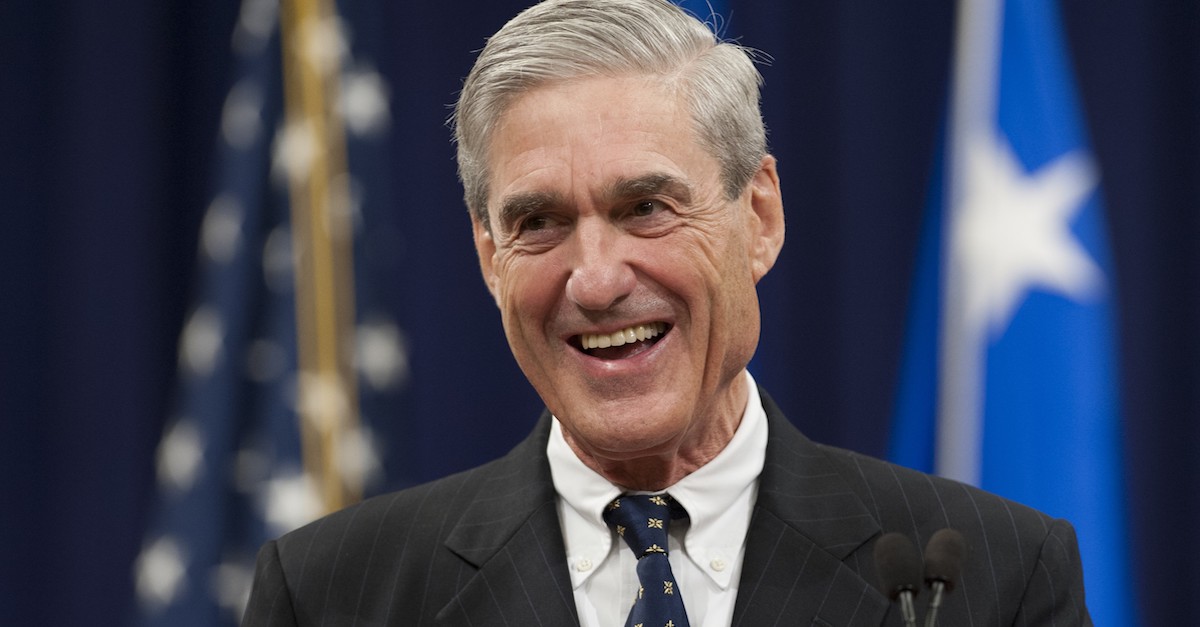
Special counsel Robert Mueller, it was revealed this week, has been dueling an unidentified foreign company owned by an unspecified country behind the scenes. A trio of appellate court judges on Friday smacked down the company’s “possible request for rehearing” in the case, the court docket indicates. As has been a calling card of sorts for In re: Grand Jury Subpoena up to this point, speed ruled the day.
But first, some context. The company filed a 3,931-word brief filed in the matter on Thursday, perhaps a motion en banc (whole panel of judges) for a rehearing in the case. As Law&Crime has noted before, part of the intrigue surrounding this case was precisely the special attention it had been receiving, including en banc attention. The company in question filed this motion after the D.C. Court of Appeals affirmed the lower court’s ruling on Tuesday, saying that the company had to comply with the Mueller grand jury subpoena.
The Special Counsel’s Office on Friday filed a sealed response to this motion and a sealed corrected response. It’s not clear what needed correcting, but that was entered into the record at 12:49 p.m. Mueller’s response was more that 5,000 words. Around two hours later, the mystery appellant replied again. Roughly an hour and a half after that, Judges David Tatel, Thomas Griffith and Stephen Williams entered a sealed order, denying the foreign company’s motion.

If, indeed, a motion for rehearing en banc was denied, the company could attempt to get the Supreme Court involved. SCOTUS reserves the right to ignore this.
The unnamed corporation has argued that it couldn’t comply with the subpoena because it is “unreasonable and oppressive […] because it would require the Corporation to violate Country A’s law.” This panel of judges ultimately determined that this argument was a losing one.
“The Grand Jury seeks information from a corporation (‘the Corporation’ owned by Country A. After receiving a subpoena for that information, the Corporation moved to quash claiming (1) that it is immune under the Foreign Sovereign Immunities Act (“the Act”) [FSIA] and (2) that the subpoena is unenforceable as unreasonable and oppressive under Federal Rule of Criminal Procedure 17(c)(2) because it would require the Corporation to violate Country A’s domestic law,” the Tuesday filing said.
The U.S. District Court previously determined that this “Company” had to comply with the grand jury subpoena and held it contempt when it refused. The court also slapped the appellant with monetary penalties that were to increase each day the company failed to comply. Then the company appealed.
The appellate court has agreed that the company “has fallen well short of carrying [the] burden” of proving its contention.
“The text of the foreign law provision the Corporation relies on does not support its position,” the judges said. “Consequently, we are unconvinced that Country A’s law truly prohibits the Corporation from complying with the subpoena.”
Law&Crime reached out to the Special Counsel’s Office, asking if they wished to comment on this latest development. Team Mueller declined to do so.
[Image via Saul Loeb/AFP/Getty Images]
Have a tip we should know? [email protected]